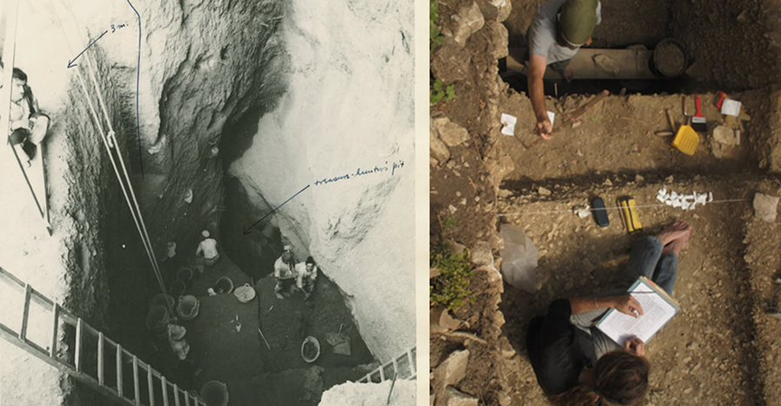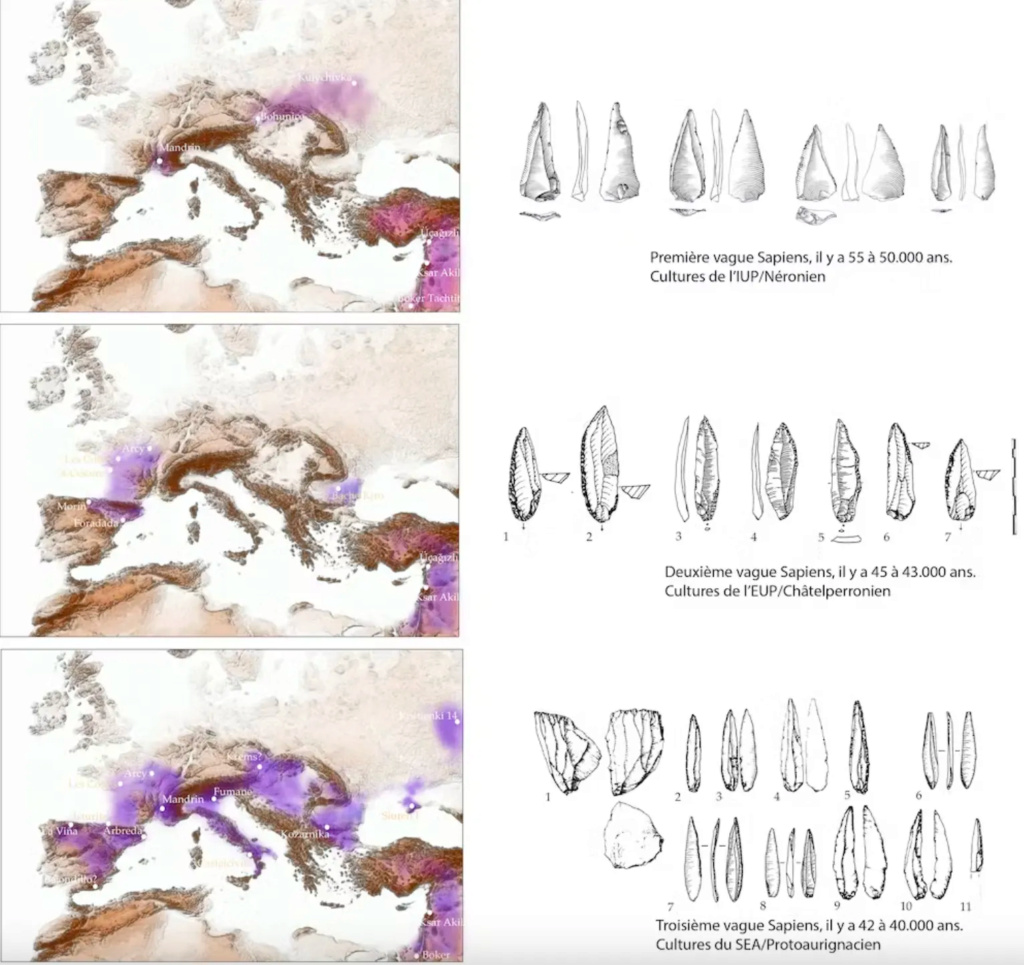Discovery: Modern human colonization of Europe called into question by new study

Homo sapiens skulls. "Modern man" would have colonized Europe in three waves spread over more than ten millennia, according to Toulouse archaeologist Ludovic Slimak. •
On May 3, the archaeologist from Toulouse, Ludovic Slimak, published the report of his research on the first European Homo sapiens. Its controversial discovery upsets our chronological timeline of... 12 millennia! Explanations.
It is a discovery that could call into question a whole section of the origin of humanity. In an article published on May 3, 2023, Ludovic Slimak, Toulouse archaeologist and CNRS researcher, published the conclusions of his research and those of his teams. The subject ? The colonization of Europe by Homo sapiens , and the disappearance of Neanderthals.

In his article, the researcher is certain: we are wrong by 12,000 years about the arrival of Homo sapiens on the Old Continent.

Neanderthal Man (photo) would have confronted Homo sapiens colonizers 12,000 years earlier than we thought. •
A colonization in three waves
According to the researcher, the stage that we currently thought to be the first wave of colonization of Homo sapiens on European soil (42,000 years ago) would in fact be the last . In reality, there would have been much earlier settlements. Two waves would have preceded it, the first 12,000 years earlier, i.e. 54,000 years ago

On the left, a representation of the three waves of sapiens migration to Europe. On the right, the flints corresponding to these different periods. •
To reach this conclusion, Ludovic Slimak and his teams studied nine teeth discovered in the Grotte Mandrin, in the Rhône Valley, as well as flints from the same area.
These teeth seem to belong to Homo sapiens, and the flints from the same period are very similar to other flints of Homo-sapian origin, found thousands of kilometers away, at Ksar Akil, in Lebanon.
For Ludovic Slimak and his teams there is no doubt, it is indeed a trace of Homo sapiens in the Rhone Valley, and it dates back as far as 54,000 years before our era.

By identifying these flints as of Homo-sapiens origin, the researchers also question the origin of one of the main prehistoric stone tool industries discovered in France: the Châtelperronian tools .
Scientists have long attributed these tools to Neanderthals, but the Toulouse researcher's study therefore confirms something completely different. For Ludovic Slimak, these flints are similar to stone tools made in the Middle East, which suggests that they were brought by Homo sapiens during his migration to Europe.
A publication that upsets certainties
The famous British media The Guardian relayed this analysis. While specifying all the same the controversial nature of these conclusions . Because it is an important questioning of the era of the colonization of Homo sapiens.
Ditto for the Châtelperronian tools. Attributing them to Homo sapiens goes against the theory that Neanderthals were also capable of making sophisticated tools. It is thus the cognitive capacities of this extinct species that are also called into question.
Source : websites

